
Jaffna: The Northern Jewel of Sri Lanka
Jaffna, the cultural heart of Sri Lanka's Northern Province, offers a unique blend of history, culture, and beauty. This city, rich in Tamil heritage, invites visitors to explore its ancient temples, vibrant markets, and stunning coastal landscapes. Known for its resilience and warmth, Jaffna is a testament to the spirit of its people. Discover the Nallur Kandaswamy Temple, an iconic Hindu temple that stands as a symbol of Jaffna's religious significance. The temple's intricate architecture and vibrant festivals provide a glimpse into the local traditions and customs. A visit to the Jaffna Library, one of Asia's most treasured libraries, offers insight into the city's storied past and its ongoing cultural renaissance. The Jaffna Fort, a remnant of colonial history, offers panoramic views of the city and the coastline. Wander through the fort's historical ruins and learn about its strategic importance over the centuries. For a taste of local life, head to the bustling Jaffna Market where you can sample traditional Tamil cuisine, including the famous Jaffna crab curry and palmyrah-based sweets. Beyond the city, the idyllic islands of the Jaffna Peninsula await exploration. Kayts, Karainagar, and Delft Island each offer unique experiences from pristine beaches to ancient ruins. The serene Naguleswaram Temple and Keerimalai Hot Springs provide a tranquil escape, perfect for relaxation and reflection. With its rich tapestry of experiences, Jaffna promises a memorable journey for every traveler.
Local tips in Jaffna
- Visit the Nallur Kandaswamy Temple early in the morning to avoid crowds and witness the morning rituals.
- Hire a bicycle or scooter to explore the city and its outskirts for a more immersive experience.
- Try the local cuisine at the Jaffna Market, especially the Jaffna crab curry and palmyrah-based sweets.
- Explore the islands of the Jaffna Peninsula for a mix of history and nature.
- Respect local customs and dress modestly, especially when visiting religious sites.
Jaffna: The Northern Jewel of Sri Lanka
Jaffna, the cultural heart of Sri Lanka's Northern Province, offers a unique blend of history, culture, and beauty. This city, rich in Tamil heritage, invites visitors to explore its ancient temples, vibrant markets, and stunning coastal landscapes. Known for its resilience and warmth, Jaffna is a testament to the spirit of its people. Discover the Nallur Kandaswamy Temple, an iconic Hindu temple that stands as a symbol of Jaffna's religious significance. The temple's intricate architecture and vibrant festivals provide a glimpse into the local traditions and customs. A visit to the Jaffna Library, one of Asia's most treasured libraries, offers insight into the city's storied past and its ongoing cultural renaissance. The Jaffna Fort, a remnant of colonial history, offers panoramic views of the city and the coastline. Wander through the fort's historical ruins and learn about its strategic importance over the centuries. For a taste of local life, head to the bustling Jaffna Market where you can sample traditional Tamil cuisine, including the famous Jaffna crab curry and palmyrah-based sweets. Beyond the city, the idyllic islands of the Jaffna Peninsula await exploration. Kayts, Karainagar, and Delft Island each offer unique experiences from pristine beaches to ancient ruins. The serene Naguleswaram Temple and Keerimalai Hot Springs provide a tranquil escape, perfect for relaxation and reflection. With its rich tapestry of experiences, Jaffna promises a memorable journey for every traveler.
When is the best time to go to Jaffna?
Iconic landmarks you can’t miss
Nallur Kandaswamy Kovil
Explore the spiritual heart of Jaffna at Nallur Kandaswamy Kovil, a stunning Hindu temple filled with vibrant culture and rich history.
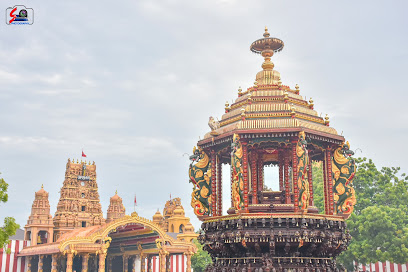
Dutch Fort - Jaffna
Discover the Dutch Fort in Jaffna, a historic fortress showcasing colonial architecture and breathtaking views of Sri Lanka's northern coast.
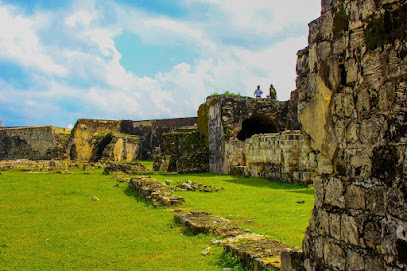
Jaffna Market
Dive into the vibrant local culture at Jaffna Market, where fresh produce, traditional sweets, and handcrafted treasures await every visitor.
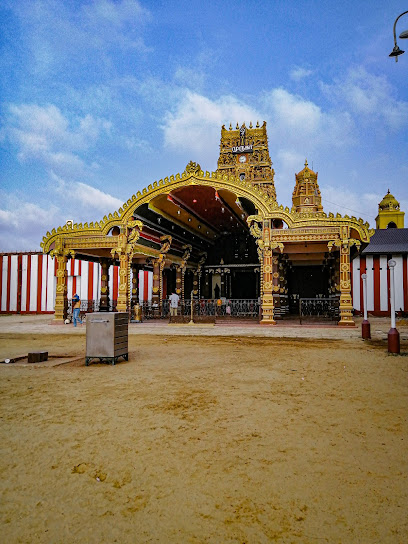
Jetwing Jaffna
Discover the charm of Jaffna with a luxurious stay at Jetwing Jaffna, where comfort meets local culture in beautiful northern Sri Lanka.
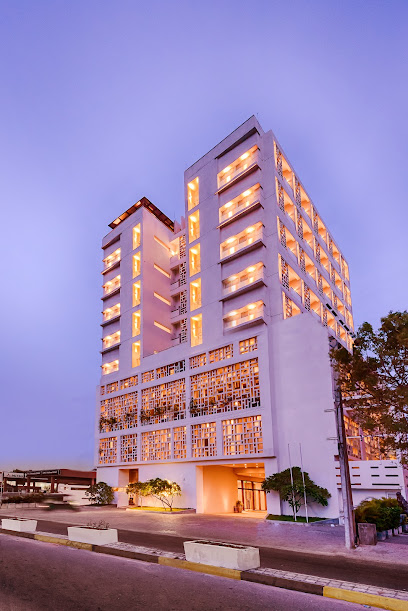
Sri Nagavihara International Buddhist Centre
Explore the spiritual heart of Jaffna at Sri Nagavihara International Buddhist Centre, a tranquil haven for meditation and cultural enrichment.
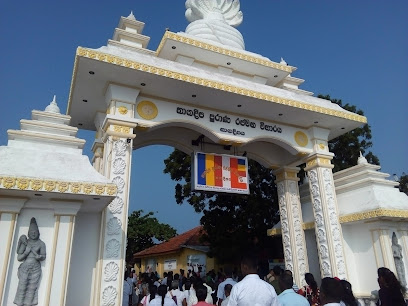
Old Park
Experience the tranquility and natural beauty of Old Park, a serene escape in the heart of Jaffna, perfect for relaxation and cultural immersion.
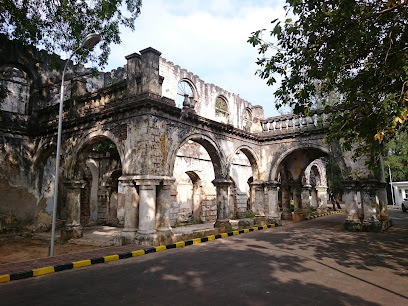
Jaffna Public Library
Discover the cultural heartbeat of Jaffna at the historic Public Library, a treasure trove of literature and architectural beauty.
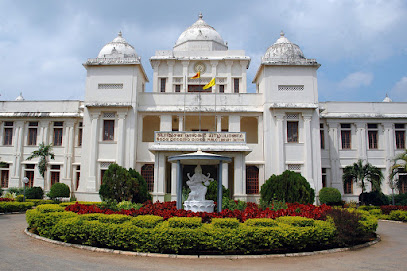
Jaffna Heritage Hotel
Experience the essence of Sri Lankan hospitality at Jaffna Heritage Hotel, a perfect blend of tradition and modern comfort.

Jaffna Archeological Museum
Explore the rich history of Northern Sri Lanka at the Jaffna Archaeological Museum, home to unique artifacts and cultural insights.
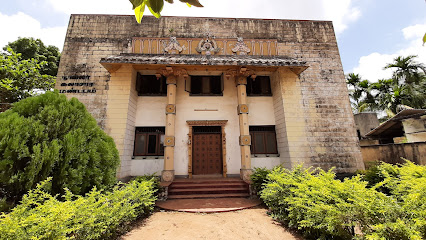
King Sangiliyan's Statue
Discover the historical essence of Jaffna at the King Sangiliyan's Statue, a significant landmark reflecting the region's rich cultural heritage.
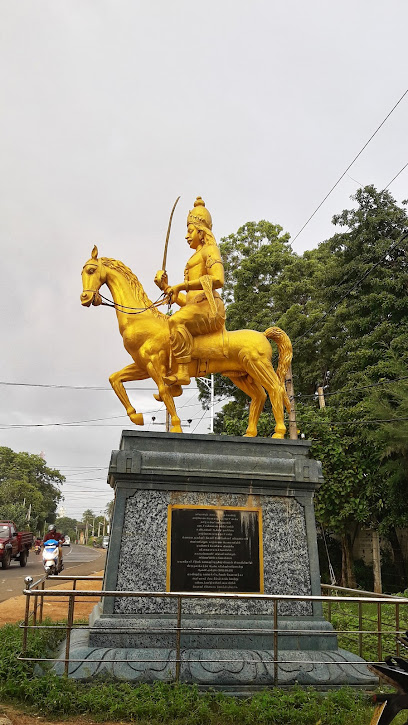
Mantri Manai
Explore Mantri Manai, Jaffna's historical gem, where the past meets tranquility amidst stunning architecture and cultural richness.
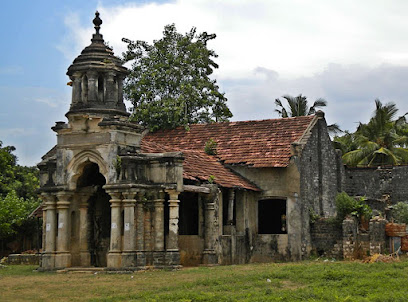
St. Mary's Cathedral Jaffna
Experience the serene beauty and rich heritage of St. Mary's Cathedral, a stunning architectural gem in the heart of Jaffna, Sri Lanka.
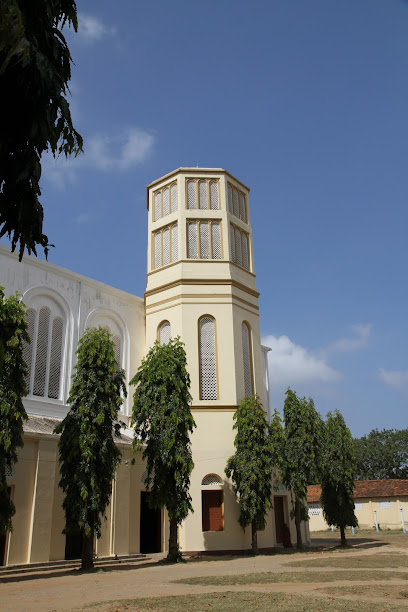
Poothathamby Arch (Sangili Toppu)
Discover the historic Poothathamby Arch in Jaffna, a cultural gem that reflects the region's rich heritage and architectural beauty.
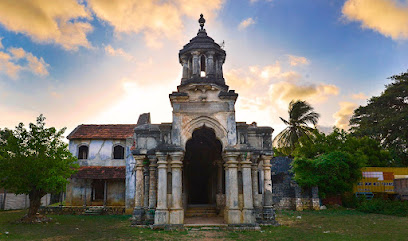
Jaffna Clock Tower
Explore the rich history and vibrant culture of Jaffna at the iconic Clock Tower, a symbol of the city’s colonial heritage and community spirit.
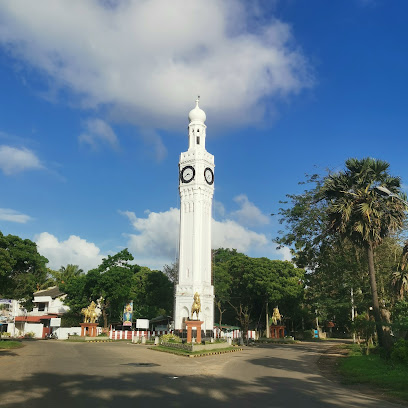
Dutch Kachcheri Ruins
Discover the enchanting Dutch Kachcheri Ruins in Jaffna, a significant historical site showcasing colonial architecture and rich cultural heritage.
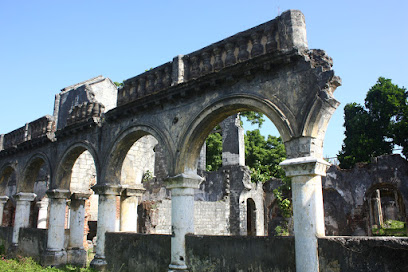
Unmissable attractions to see
Nallur Kandaswamy Devasthanam
Explore the spiritual heart of Jaffna at Nallur Kandaswamy Devasthanam, a vibrant Hindu temple rich in culture and tradition.
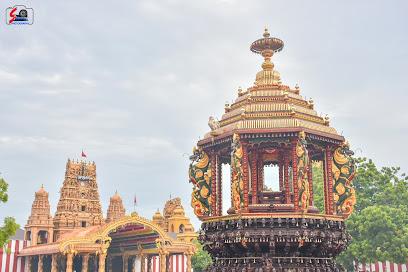
Nagadeepa Temple
Discover the tranquility and spiritual heritage of Nagadeepa Temple in Sri Lanka, a revered Buddhist site amidst stunning landscapes.
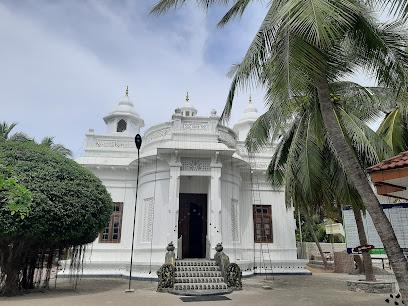
Casuarina Beach
Escape to the pristine shores of Casuarina Beach in Sri Lanka, where sun, sea, and serenity await every traveler.
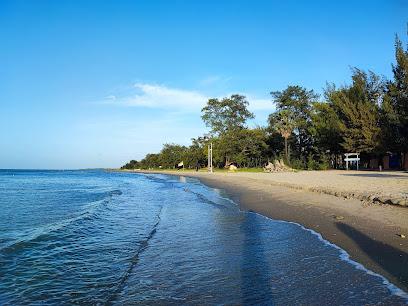
Jaffna Public Library
Discover the Jaffna Public Library, a symbol of resilience and knowledge in Sri Lanka, showcasing an extensive collection of Tamil literature and cultural heritage.
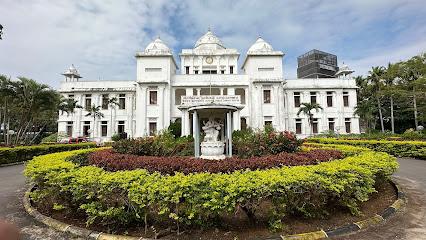
Jaffna Archeological Museum
Uncover the ancient heritage of Jaffna at the Archaeological Museum, where the past comes alive through remarkable artifacts and engaging exhibits.
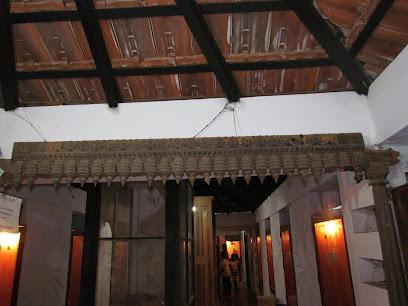
St. Mary's Cathedral Jaffna
Explore the serene beauty and rich history of St. Mary's Cathedral Jaffna, a stunning Catholic cathedral and cultural landmark in Sri Lanka.
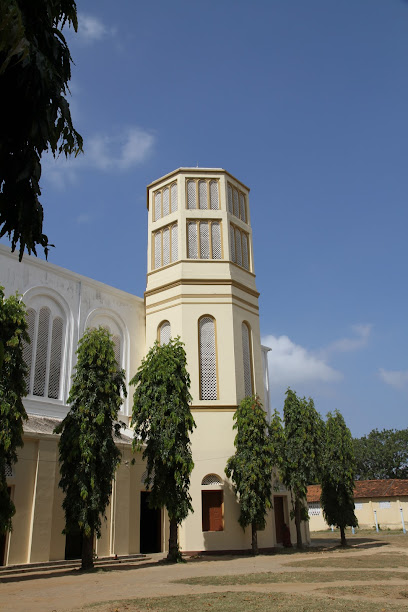
Pannai Beach - Jaffna
Discover the serene beauty of Pannai Beach in Jaffna, a tranquil coastal escape with stunning sunsets and rich local culture.
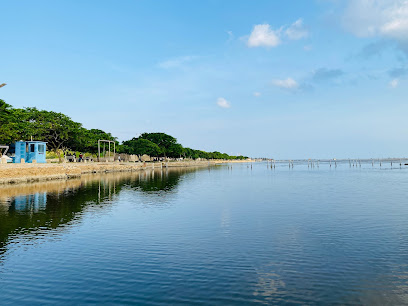
MGR Statue, Passaiyoor
Discover the cultural essence of Jaffna at the iconic MGR Statue, a tribute to the legendary Tamil actor and politician, M.G. Ramachandran.
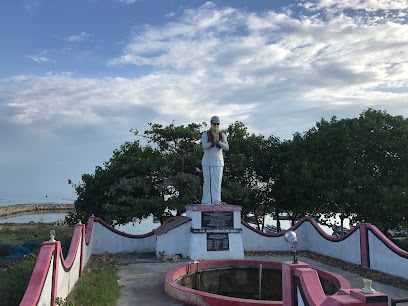
Gateway of Jaffna - Yazh Varavu
Discover the historical significance and stunning architecture of the Gateway of Jaffna - Yazh Varavu, a must-visit landmark in the heart of Jaffna.
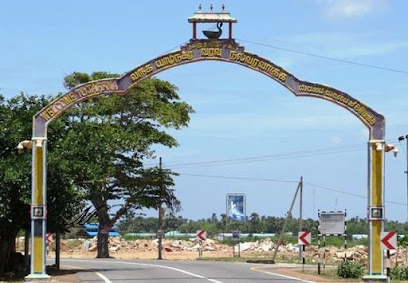
Public Park - Jaffna Fort
Discover the serene beauty and historical significance of Jaffna Fort Park, a perfect blend of nature and culture in the heart of Jaffna.
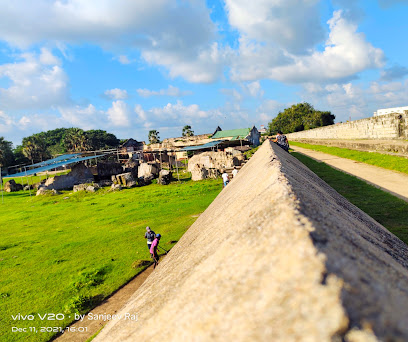
Pannai Lovers View ️
Discover the breathtaking coastal views at Pannai Lovers View, a romantic escape in Jaffna, Sri Lanka, perfect for sunsets and serene moments.
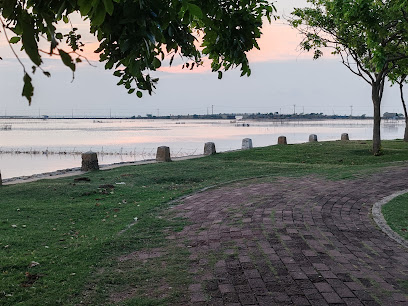
Ariyakulam Tourism Center
Experience the rich culture and natural beauty at Ariyakulam Tourism Center in Jaffna, a perfect blend of relaxation and heritage exploration.
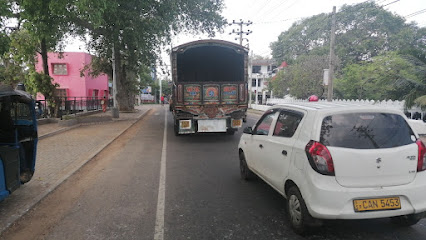
4வது உலகத் தமிழாராய்ச்சி மாநாட்டு உயிர்க்கொடையாளரின் நினைவாலயம்.
Explore the Memorial Park in Jaffna, a tranquil haven dedicated to honoring the past and celebrating resilience in the face of adversity.
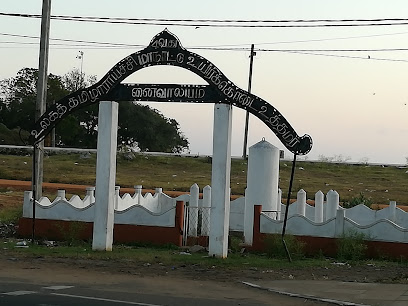
Muniappar Kovil
Muniappar Kovil: A serene Hindu temple in Jaffna, showcasing stunning architecture and rich cultural heritage, perfect for exploring spirituality.
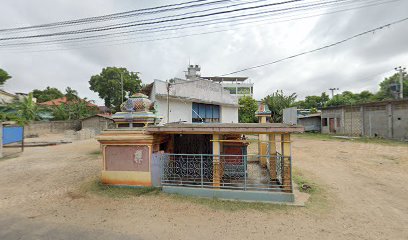
கேணல் கிட்டுப் பூங்கா
Explore the Jaffna Museum and uncover the rich tapestry of Sri Lanka's heritage through its captivating artifacts and cultural exhibitions.
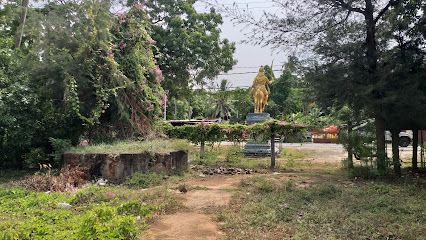
Essential places to dine
Rio Ice Cream - Jaffna
Discover the vibrant flavors of Sri Lanka at Rio Ice Cream in Jaffna - where every scoop tells a story.
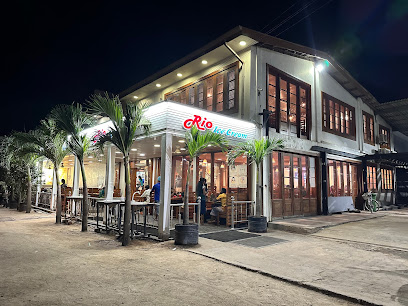
Valampuri Hotel
Discover Valampuri Hotel: A perfect blend of traditional Sri Lankan dining and comfortable lodging in the heart of Jaffna.
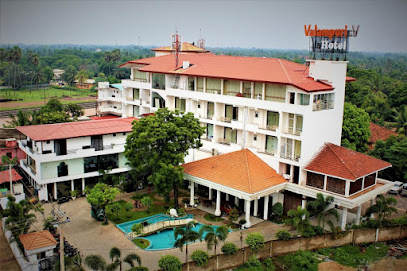
Pizza Hut - Jaffna
Experience the best pizza in Jaffna at Pizza Hut – where flavor meets comfort in every slice.
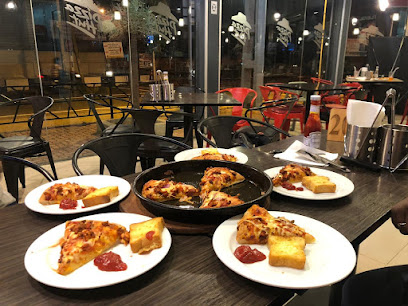
Green Grass Hotel & Restaurant (Pvt) Ltd.
Discover authentic Sri Lankan flavors at Green Grass Hotel & Restaurant in Jaffna - where tradition meets modern hospitality.
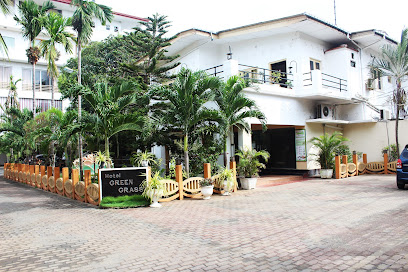
Malayan Cafe
Experience the authentic taste of Sri Lanka at Malayan Cafe in Jaffna – where every dish tells a story.
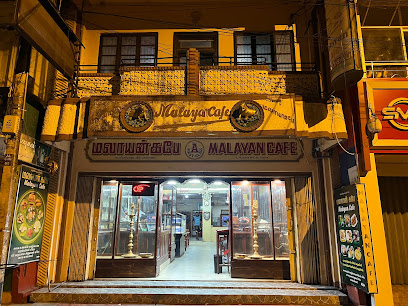
Mangos Indian Veg
Discover authentic vegetarian Indian cuisine at Mangos Indian Veg in Jaffna – where every dish tells a story!
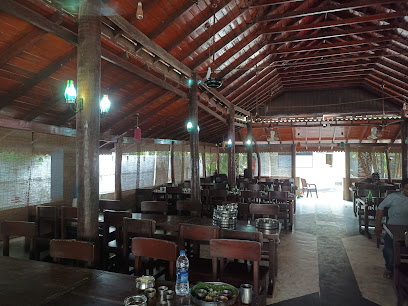
Akshathai/Nila
Experience the vibrant flavors of vegetarian cuisine at Akshathai/Nila in Jaffna - where tradition meets taste.
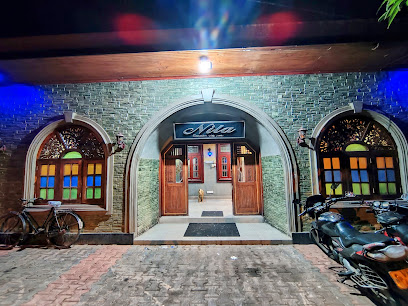
Lavin's Vegetarian Family Restaurant
Experience authentic vegetarian delights at Lavin's Vegetarian Family Restaurant in Jaffna – where every dish tells a story.
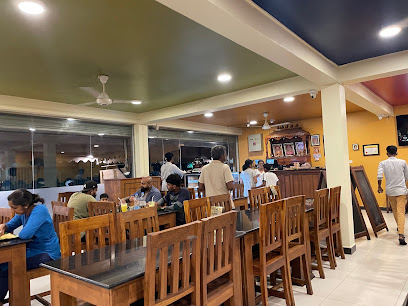
நீலம்பரி உணவகம் - யாழ்ப்பாணம் | Neelambary Unavagam - Jaffna
Experience authentic Sri Lankan cuisine at Neelambary Unavagam in Jaffna – a culinary gem offering rich flavors and vibrant atmosphere.
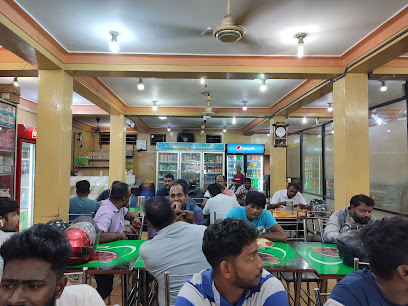
Jaffna Authentic Cuisine / JAC Dining
Experience authentic Tamil cuisine at Jaffna Authentic Cuisine, where every dish tells a story of heritage and flavor.
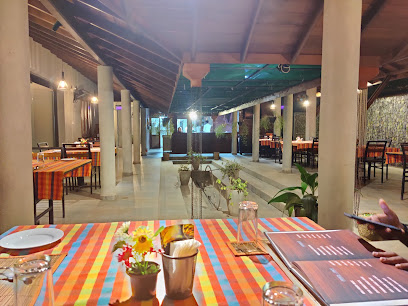
J Hotels Jaffna
Discover luxury dining and elegant event spaces at J Hotels Jaffna – your gateway to Sri Lanka's vibrant culture.
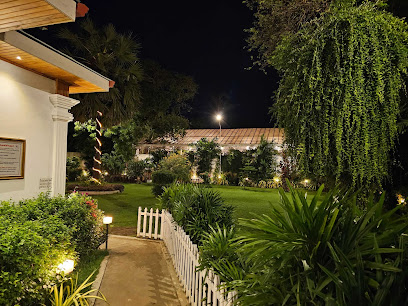
Cosy Hotel & Restaurant
Experience authentic Sri Lankan cuisine at Cosy Hotel & Restaurant in Jaffna - where every meal is a celebration of flavor.
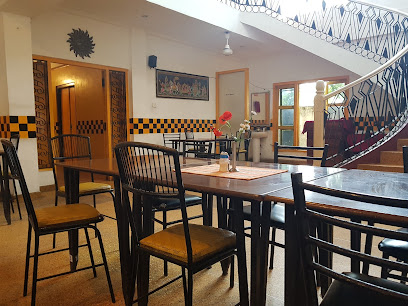
Nallur Bhavan Vegetarian Restaurant
Discover authentic vegetarian delights at Nallur Bhavan Vegetarian Restaurant in Jaffna - where every dish tells a story of Sri Lankan culture.
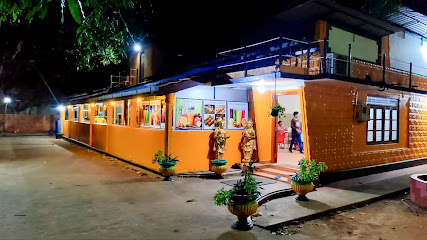
U.S. Restaurant
Experience the vibrant flavors of Sri Lanka at U.S. Restaurant in Jaffna - where local cuisine meets warm hospitality.
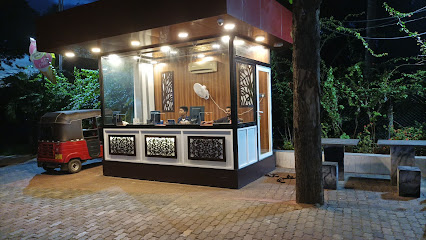
Jaffna Heritage Hotel
Experience authentic Sri Lankan hospitality at Jaffna Heritage Hotel - your gateway to exploring Northern Sri Lanka's rich culture.

Markets, malls and hidden boutiques
ABI FASHION WORLD
Discover a vibrant shopping experience at ABI Fashion World in Jaffna, where local culture meets modern fashion in a lively mall atmosphere.
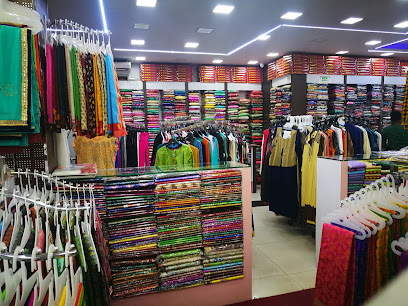
Karudaa Gift Shop
Explore the enchanting Karudaa Gift Shop in Jaffna for unique souvenirs, delightful cakes, and beautiful floral arrangements that capture local culture.
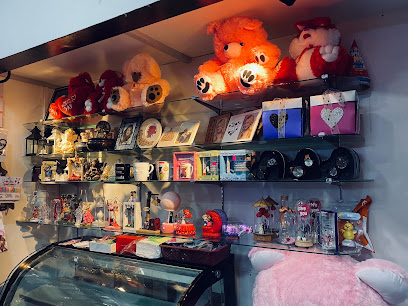
Fashion House
Explore Fashion House in Jaffna for unique fashion accessories and local souvenirs that showcase the essence of Sri Lanka.
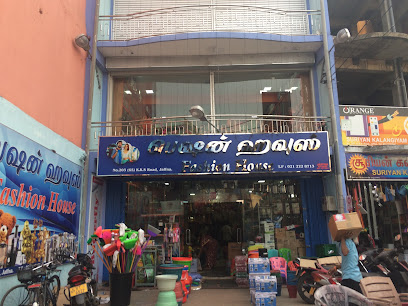
STYLO
Discover fashion in Jaffna at STYLO, your go-to clothing store for trendy attire and local styles, perfect for every occasion.
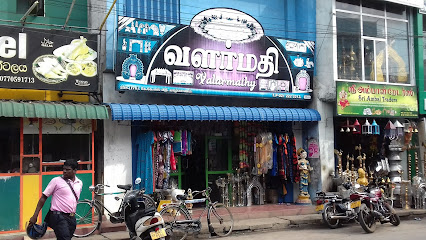
Jeevan Studio Resin Art Shop Cargils Square
Discover unique handcrafted resin art pieces at Jeevan Studio in Cargills Square, Jaffna, a perfect stop for art lovers and souvenir seekers.
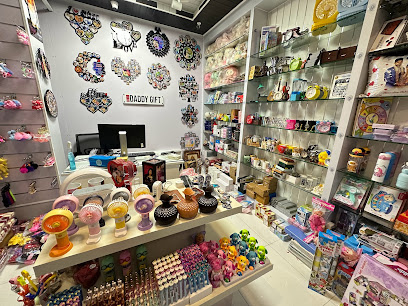
Stylish Collection
Discover unique fashion at Stylish Collection in Jaffna, where local craftsmanship meets contemporary style in a vibrant shopping atmosphere.
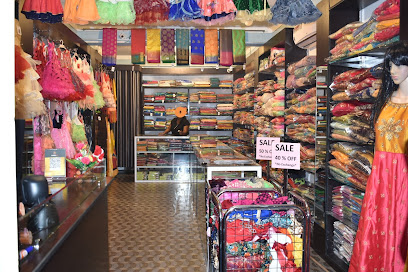
M&M Fashions
Explore the colorful array of clothing at M&M Fashions, where Jaffna's rich culture meets contemporary style in a friendly shopping atmosphere.
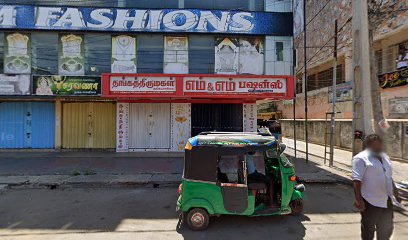
Joy Gifts
Explore Joy Gifts in Jaffna for unique souvenirs and local handicrafts that capture the essence of Sri Lanka's vibrant culture.
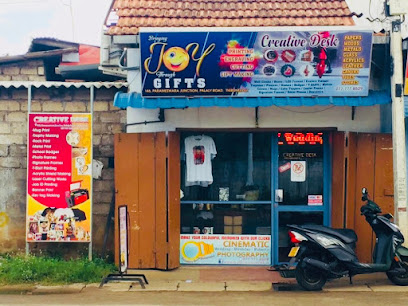
Gift 2 Jaffna
Explore the vibrant culture of Jaffna through unique handcrafted gifts, souvenirs, and local treasures at Gift 2 Jaffna.
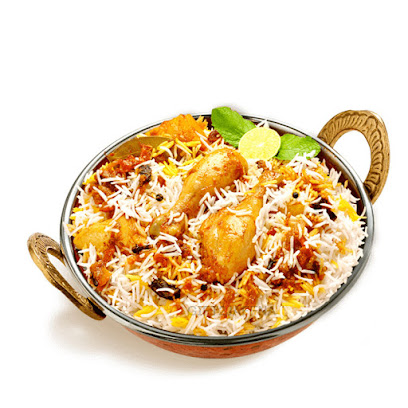
TRENDY JAFFNA
Shop the latest styles at Trendy Jaffna, where contemporary fashion meets traditional charm in the heart of Jaffna.
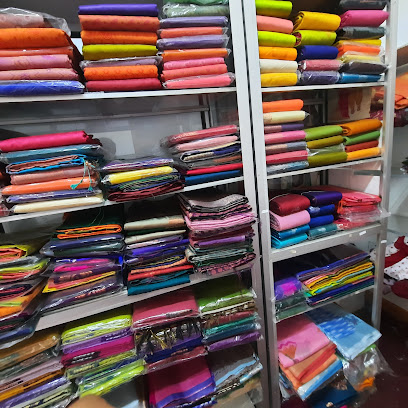
Souvenir Central
Discover the essence of Jaffna at Souvenir Central, where unique treasures and local artistry come together for an unforgettable shopping experience.
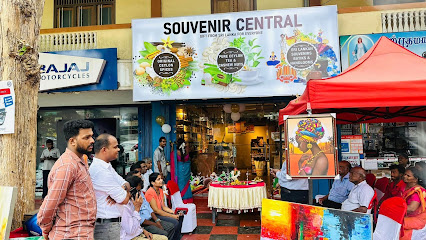
Kannan Stores
Explore Kannan Stores in Jaffna, a vibrant grocery store and shopping mall offering local goods, fresh produce, and unique shopping experiences.
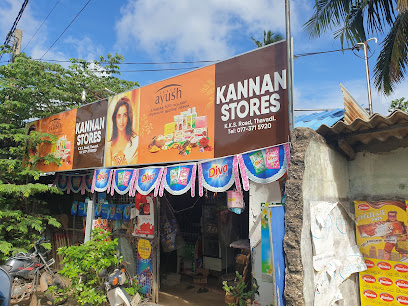
Kajamugan Store
Experience the lively ambiance and rich local products at Kajamugan Store, a must-visit shopping destination in Jaffna, Sri Lanka.
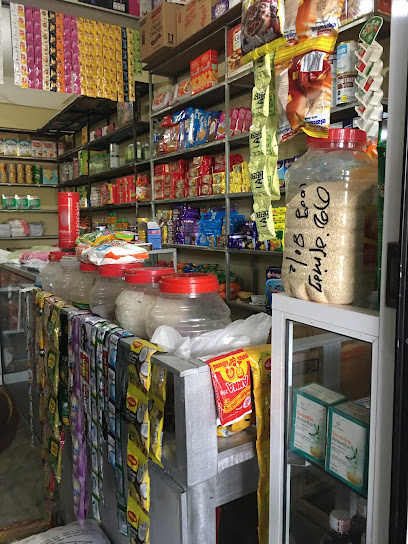
The School Shop
Discover a charming stationery store in Jaffna, offering quality supplies and unique gifts that celebrate local culture and creativity.
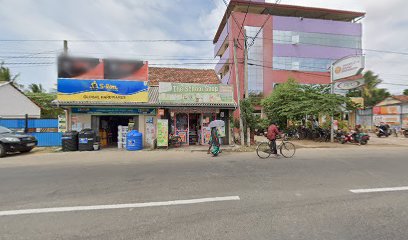
2Lanka.com
Explore 2Lanka.com in Jaffna – your gateway to unique Sri Lankan gifts and authentic local craftsmanship.
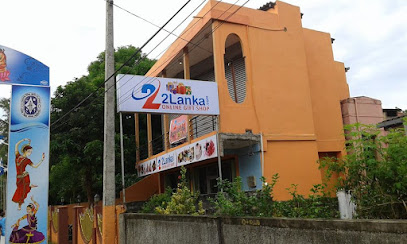
Essential bars & hidden hideouts
Green Grass Hotel & Restaurant (Pvt) Ltd.
Discover the flavors of Jaffna at Green Grass Hotel & Restaurant, where comfort meets culinary excellence in a vibrant cultural setting.
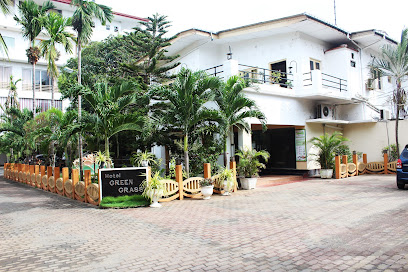
Cosy Hotel & Restaurant
Experience authentic Sri Lankan flavors at Cosy Hotel & Restaurant in Jaffna, where comfort meets culinary excellence.
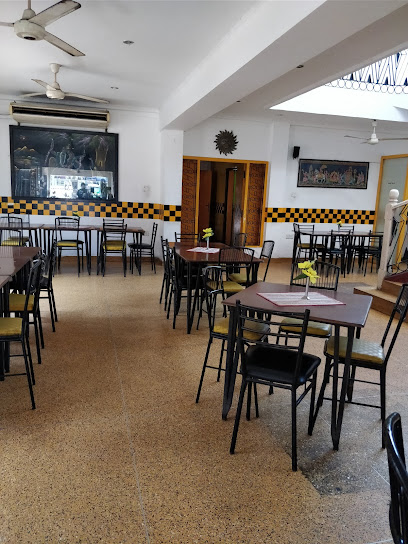
New Selva Hotel
Experience authentic Sri Lankan flavors at New Selva Hotel, a must-visit restaurant in Jaffna for food enthusiasts and travelers alike.
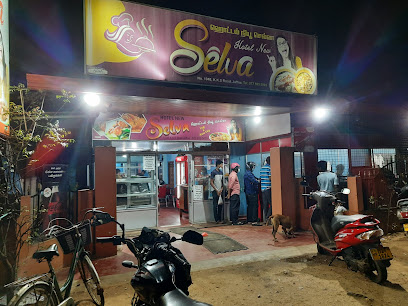
Yal's Town Inn Hotel & Restaurant
Discover the perfect fusion of comfort and cuisine at Yal's Town Inn Hotel & Restaurant, your gateway to Jaffna's rich flavors and warm hospitality.

Liquor Restaurant No1
Discover the vibrant flavors of Jaffna at Liquor Restaurant No1, where grilled delicacies and warm hospitality await every visitor.
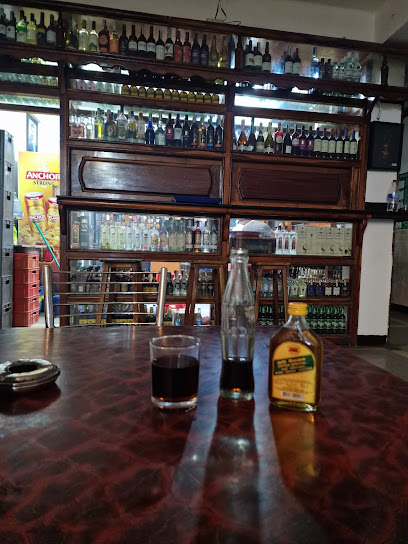
Machang Jaffna
Experience the vibrant nightlife of Jaffna at Machang Jaffna, where local culture meets a lively bar atmosphere, perfect for every traveler.
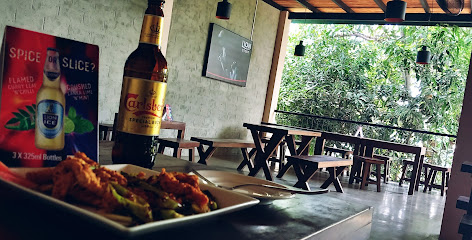
The Tiki Jaffna
Discover the essence of Sri Lankan cuisine at The Tiki Jaffna, where local flavors meet a vibrant atmosphere for an unforgettable dining experience.
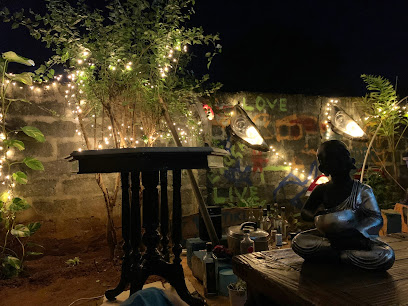
Toddy Shop රා තැබරුම 2
Discover the essence of Jaffna's culture at Toddy Shop, where local flavors and lively atmosphere blend seamlessly for an unforgettable experience.
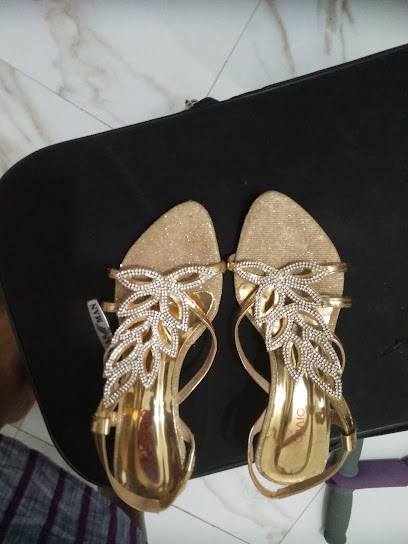
TOP WINE SHOP BAR
Experience the best of Jaffna's wine culture at TOP WINE SHOP BAR, where fine wines meet local charm in an inviting atmosphere.
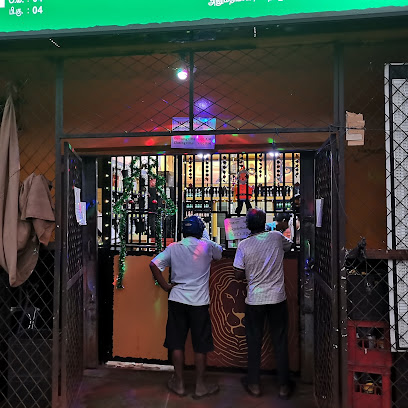
Colombo Bar & Restaurant
Experience authentic Sri Lankan flavors at Colombo Bar & Restaurant, a culinary gem in Jaffna offering traditional dishes and warm hospitality.
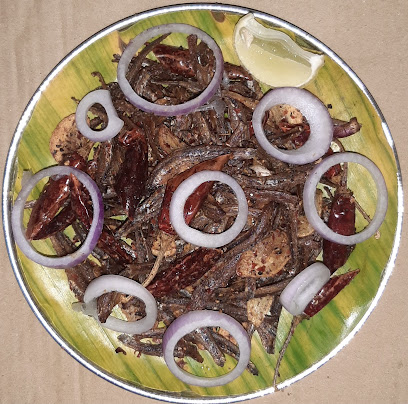
Sivasambo wine stores
Discover the charm of Sivasambo Wine Stores in Jaffna, where fine wines and local flavors create an unforgettable experience.
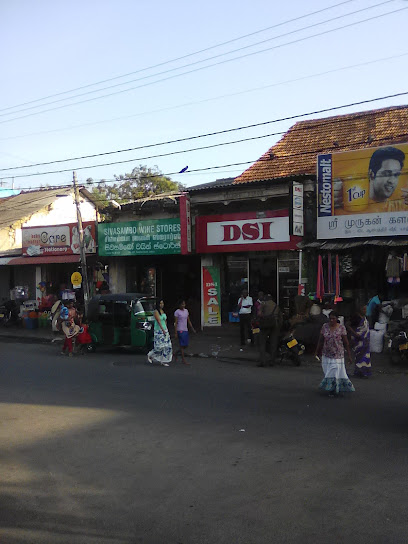
Seven eleven spots bar
Experience the vibrant nightlife at Seven Eleven Spots Bar in Jaffna, where delicious bites and refreshing drinks await every traveler.
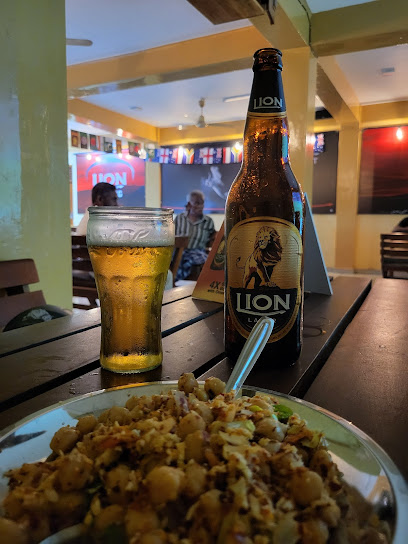
Brighten Restaurant
Discover authentic Sri Lankan flavors at Brighten Restaurant in Jaffna, a culinary delight for every food lover.
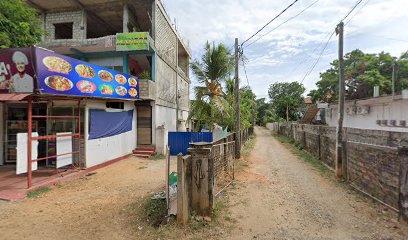
Toddy shop - රා තැබෑරුම 1
Experience the authentic flavors of Jaffna at Toddy Shop - a traditional bar serving local delicacies and the famous Sri Lankan toddy.
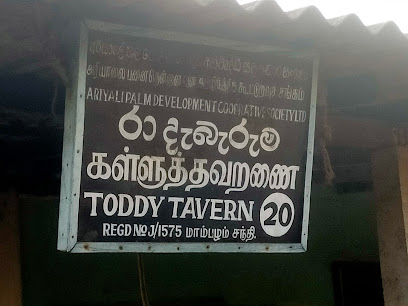
Local Phrases
-
- Helloவணக்கம்
[Vanakkam] - Goodbyeபிரியாவிட்டு வருக
[Piriyaavittu varuga] - Yesஆம்
[Aam] - Noஇல்லை
[Illai] - Please/You're welcomeதயவு
[Thayavu] - Thank youநன்றி
[Nandri] - Excuse me/Sorryமன்னிக்கவும்
[Mannikkavum] - How are you?உங்கள் நலம் எப்படி?
[Ungal nalamae epadi?] - Fine. And you?நன்று. நீங்கள் எப்படி?
[Nandru. Neengal epadi?] - Do you speak English?நீங்கள் ஆங்கிலம் பேசுகிறீர்களா?
[Neengal aangilam pesugireerkalaa?] - I don't understandநான் புரியவில்லை
[Naan puriyavillai]
- Helloவணக்கம்
-
- I'd like to see the menu, pleaseமெனுவை தேடுங்கள், தயவுசெய்து
[Menuvai thedungal, thayavuseydhu] - I don't eat meatநான் பசுபாதம் சாப்பிடுவிக்கிறேன்
[Naan pasupatham saappiduvikiren] - Cheers!வாழ்த்துக்கள்!
[Vaalthukal] - I would like to pay, pleaseநான் செலுத்த விரும்புகிறேன், தயவுசெய்து
[Naan selutha virumbukiren, thayavuseydhu]
- I'd like to see the menu, pleaseமெனுவை தேடுங்கள், தயவுசெய்து
-
- Help!உதவி!
[Udhavi] - Go away!பிரியாவிடு!
[Piriyaavitu] - Call the Police!காவல் அலுவலகத்தை அழைக்கவும்!
[Kaaval aluvalagathai azhaikkavum] - Call a doctor!ஒரு மருத்துவரை அழைக்கவும்!
[Oru maruthuvarai azhaikkavum] - I'm lostநான் பாதையில் கழிந்துபோனேன்
[Naan paathaiyil kalandhuboneen] - I'm illஎனக்கு நோய் உள்ளது
[Enakku noai ulladhu]
- Help!உதவி!
-
- I'd like to buy...நான் வாங்க விரும்புகிறேன்...
[Naan vaanga virumbukiren] - I'm just lookingநான் பார்க்கிறேன்
[Naan paarkkiren] - How much is it?இது எவ்வளவு?
[Idhu evvalu] - That's too expensiveஅது மிகவும் விலை உயர்ந்துவிட்டது
[Athu mikavum vilai uyarnthuvittadhu] - Can you lower the price?விலையை குறைக்க முடியுமா?
[Vilaiyai kuraikka mudiyuma?]
- I'd like to buy...நான் வாங்க விரும்புகிறேன்...
-
- What time is it?எதிர்காலம் என்ன நேரம்?
[Edhirkaalam enna neram] - It's one o'clockஒரு மணி
[Oru mani] - Half past (10)பத்து மணி அரை
[Pathu mani arai] - Morningகாலை
[Kaalam] - Afternoonமதியம்
[Mathiyam] - Eveningமாலை
[Maalai] - Yesterdayநேற்று
[Netru] - Todayஇன்று
[Indru] - Tomorrowநாளை
[Naalai] - 1ஒன்று
[Onru] - 2இரண்டு
[Irandu] - 3மூன்று
[Moonru] - 4நான்கு
[Naanku] - 5ஐந்து
[Aindhu] - 6ஆறு
[Aaru] - 7ஏழு
[Ezhu] - 8எட்டு
[Ettu] - 9ஒன்பது
[Onpathu] - 10பத்து
[Pathu]
- What time is it?எதிர்காலம் என்ன நேரம்?
-
- Where's a/the...?எங்கு ... உள்ளது?
[Engu ... ulladhu] - What's the address?முகவரி என்ன?
[Mugavari enna] - Can you show me (on the map)?நீங்கள் எனக்கு கார்ட்டுவில் காட்ட முடியுமா?
[Neengal enakku kaarttuvil kaatta mudiyuma?] - When's the next (bus)?அடுத்த ... எப்போது?
[Adutha ... eppothu] - A ticket (to ....)ஒரு டிக்கெட் (... க்கு)
[Oru ticket (... kku)]
- Where's a/the...?எங்கு ... உள்ளது?
History of Jaffna
-
Jaffna, located in the northernmost part of Sri Lanka, has a history that dates back over two millennia. The region was originally inhabited by the indigenous Tamil people, and archaeological evidence suggests that it was an important settlement area during the early historic period. The ancient port city of Jambukolapattana (modern-day Jambukola) nearby was a significant maritime hub, linking the island with South India and beyond.
-
In the 10th and 11th centuries, the powerful Chola Dynasty from South India exerted their influence over Jaffna. The Cholas were known for their impressive naval capabilities and established Jaffna as a crucial outpost in their extensive empire. During this period, Hindu temples were constructed, and the Tamil culture and language flourished, leaving a lasting impact on the region.
-
The Kingdom of Jaffna, also known as the Jaffna Kingdom or Aryacakravarti Kingdom, emerged in the 13th century. It was a Tamil Hindu monarchy that ruled over the northern part of Sri Lanka. The kingdom was known for its vibrant trade, especially in pearls and elephants, and its strong cultural and religious identity. The Nallur Kandaswamy Kovil, a significant Hindu temple, was established during this period and remains a central cultural landmark.
-
The colonial era brought significant changes to Jaffna. The Portuguese arrived in the early 17th century, followed by the Dutch, and eventually the British. Each colonial power left its mark, from the construction of forts and churches to the introduction of Western education and legal systems. The Jaffna Fort, originally built by the Portuguese and later expanded by the Dutch, stands as a testament to this turbulent period.
-
The late 20th century saw Jaffna at the heart of the Sri Lankan Civil War, a protracted conflict between the Sri Lankan government and the Liberation Tigers of Tamil Eelam (LTTE), who sought an independent Tamil state. The war caused significant destruction and displacement in Jaffna. The city was under LTTE control for much of the conflict and witnessed intense battles and sieges, particularly the Jaffna Peninsula Offensive and the recapture by government forces in 1995.
-
Following the end of the civil war in 2009, Jaffna has been undergoing a period of reconstruction and cultural revival. Efforts have been made to rebuild infrastructure, promote tourism, and preserve the rich cultural heritage of the region. Festivals like the Nallur Festival, one of the largest Hindu festivals in Sri Lanka, attract thousands of visitors each year, showcasing the resilience and enduring spirit of the Jaffna Tamil community.
Jaffna Essentials
-
Jaffna is located in the Northern Province of Sri Lanka. The nearest international airport is Bandaranaike International Airport in Colombo, approximately 400 kilometers away. From Colombo, you can take a domestic flight to Jaffna's Palaly Airport, which takes about an hour. Alternatively, you can take a train from Colombo Fort to Jaffna, a journey that offers scenic views and takes about 6-8 hours. Buses and private taxis are also available for the overland route, which takes around 8-10 hours.
-
Jaffna is a relatively compact city, making it easy to navigate. Tuk-tuks (three-wheelers) are a popular mode of transport for short distances and are readily available. For longer distances, local buses and taxis can be used. Renting a bicycle or scooter is also an option for exploring the city at your own pace. Car rentals are available but less common. For trips to nearby islands, ferries are available from the Kurikadduwan Jetty.
-
The official currency in Sri Lanka is the Sri Lankan Rupee (LKR). Credit cards are accepted in major hotels, some restaurants, and larger shops, but it is advisable to carry cash, especially for smaller establishments and market purchases. ATMs are available throughout Jaffna, though it's wise to withdraw sufficient cash when you have the opportunity.
-
Jaffna is generally a safe destination for tourists. However, it is advisable to take standard precautions. Avoid walking alone at night in unfamiliar areas and keep an eye on your belongings in crowded places. While Jaffna does not have specific high-crime areas targeting tourists, it is always best to stay vigilant and aware of your surroundings. Be cautious when traveling to remote areas and islands, and always inform someone of your travel plans.
-
In case of emergency, dial 119 for police assistance, 110 for ambulance services, and 111 for fire services. Jaffna Teaching Hospital is the main hospital in the area and provides emergency medical services. It is recommended to have travel insurance that covers medical emergencies. For minor health issues, there are several pharmacies in the city where you can purchase over-the-counter medications.
-
Fashion: Do dress modestly, especially when visiting religious sites. Avoid wearing revealing clothing. Religion: Do respect local customs and traditions. Always remove your shoes and cover your head when entering temples. Public Transport: Do be respectful and give up your seat to elderly passengers. Don’t eat or drink on public transport. Greetings: Do greet people with a smile and clasped hands (a traditional 'Ayubowan' gesture). Eating & Drinking: Do try local delicacies and accept food offerings graciously. Don’t refuse hospitality, as it is considered impolite.
-
To experience Jaffna like a local, visit the Jaffna Market to buy fresh produce and traditional goods. Engage with locals, who are often friendly and willing to share stories about the city's history and culture. Don’t miss visiting Nallur Kandaswamy Kovil, a significant Hindu temple, and the Jaffna Public Library, a symbol of the city's rich cultural heritage. For a unique experience, take a boat trip to the nearby islands such as Delft Island, which offers a glimpse into the traditional way of life and stunning natural landscapes.
Trending Landmark in Jaffna
-
Nallur Kandaswamy Kovil
-
Dutch Fort - Jaffna
-
Jaffna Market
-
Jetwing Jaffna
-
Sri Nagavihara International Buddhist Centre
-
Old Park
-
Jaffna Public Library
-
Jaffna Heritage Hotel
-
Jaffna Archeological Museum
-
King Sangiliyan's Statue
-
Mantri Manai
-
St. Mary's Cathedral Jaffna
-
Poothathamby Arch (Sangili Toppu)
-
Jaffna Clock Tower
-
Dutch Kachcheri Ruins
Nearby Cities to Jaffna
-
Things To Do in Anuradhapura
-
Things To Do in Trincomalee
-
Things To Do in Sigiriya
-
Things To Do in Madurai
-
Things To Do in Polonnaruwa
-
Things To Do in Puducherry
-
Things To Do in Pondicherry
-
Things To Do in Kandy
-
Things To Do in Negombo
-
Things To Do in Colombo
-
Things To Do in Nuwara Eliya
-
Things To Do in Kanyakumari
-
Things To Do in Ella
-
Things To Do in Bentota
-
Things To Do in Trivandrum










